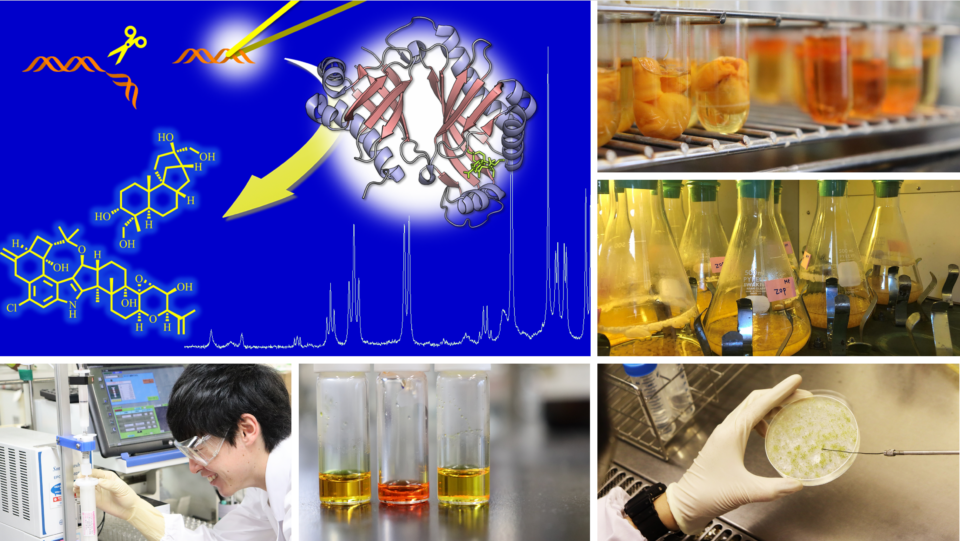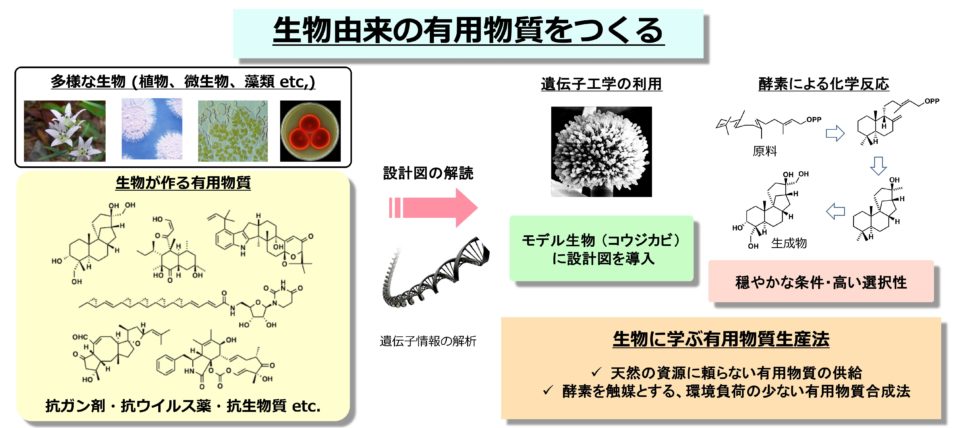Introduction of Research
Biosynthesis of Natural Products
Plants and microorganisms produce numerous biologically active organic compounds, so called “natural products”, that are used as medicines, pesticides, and fragrances. However, many of them are scarce in nature. In addition, there are concerns about resource depletion. Therefore, the potential application of these compounds is often limited and an alternative way for better production is desired. In our laboratory, we explore the genes for biosynthesis of natural products and introduce them into other microorganisms such as Aspergillus oryzae (known as koji mold in Japan). Production of natural products employing genome information and genetically tractable organism is an efficient strategy that allows sustainable supply of useful compounds.

Introduction of laboratory
In our laboratory, most of the undergraduates go on to CSE and continue their research. Most of graduate students are from Hokkaido University, but we also accept students from other universities and overseas. Since faculty members with different academic backgrounds collaborate to support research activities, a wide range of knowledge such as organic chemistry and genetic engineering can be acquired through research activities. We also encourage presentations at international and domestic conferences so that students can discuss their research content with other researchers. Many graduates are active in industrries and academia.

